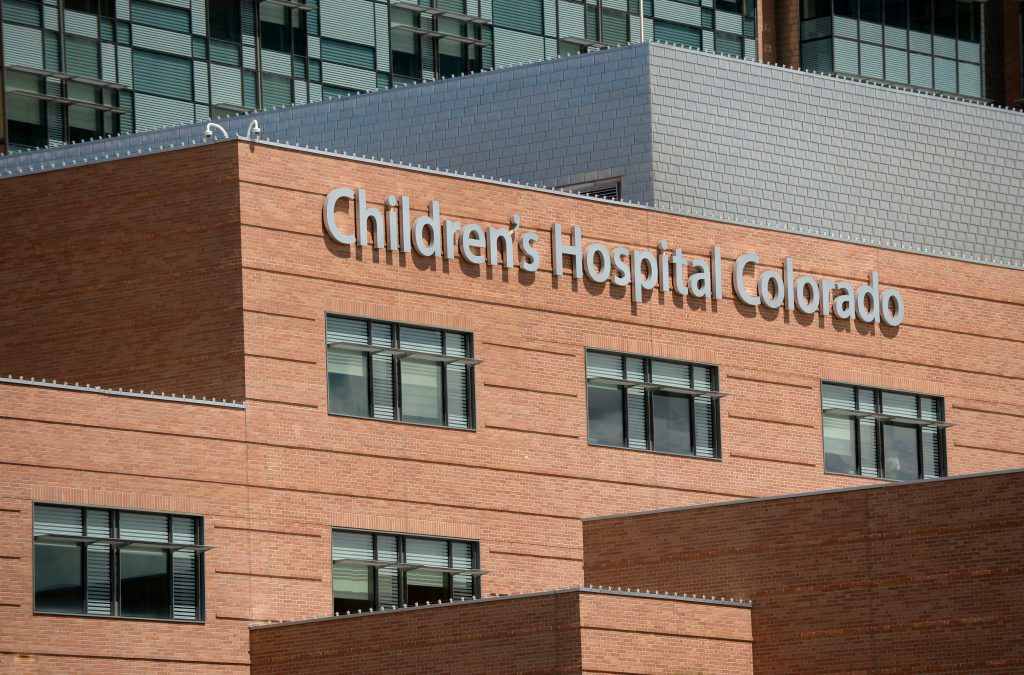Colorado health leaders sounded the alarm Tuesday over what they’re calling an unprecedented crisis among the state’s youth population, declaring for the first time a pediatric mental health “state of emergency.”
Top-ranking representatives of Children’s Hospital Colorado as well as rural leaders convened a virtual roundtable, pleading for increased funding for mental health services in schools, hospitals, in-patient clinics and other avenues as emergency rooms fill up with youth in crisis.
The public health emergency has been burbling for years, health officials say, but bubbled over the surface during the COVID-19 pandemic, when kids’ lives were disrupted with remote learning, social isolation and anxiety over family members’ health and safety.
“The current system is simply unsustainable and is failing our children,” Jena Hausmann, president and CEO of Children’s Hospital Colorado, said.
The numbers are striking: Between January and April, behavioral health visits to Children’s Hospital Colorado pediatric emergency departments were up 72% over the same time period in 2019. In April alone, those visits were up 90%, according to Children’s Hospital.
In Colorado Springs, behavioral health visits to the emergency department shot up 145% as compared to the first fourth months of 2020.
The Pediatric Mental Health Institute at Children’s Hospital Colorado has seen twice as many patients reporting increased anxiety, depression and feelings of isolation and social disconnectedness.
“I’ve been in practice for over 20 years in pediatrics,” said Dr. David Brumbaugh, chief medical officer for Children’s Hospital Colorado, “and I’ve never seen anything like the demand for mental health services in the last 15 months.”
In 2020, 67 children between the ages of 10 and 17 died by suicide. That’s up from the 61 suicides recorded on average during the previous five years, according to death certificate data from the Colorado Department of Public Health and Environment.
Brumbaugh recalled a father coming into Children’s Hospital with his son, a ninth-grader. The two men had much in common: Their kids were the same age. They both played baseball.
After the man’s son didn’t make a team, he tried to take his own life, Brumbaugh said.
“That’s normal childhood adversity, not making a ball team,” the doctor said, his voice quavering. “It happens all the time. But our kids have run out of resilience.”
Health leaders during the roundtable pointed to Colorado’s ranking as the third-lowest in the country for prevalence of mental illness and low rate of access to care.
This isn’t a question of the state needing to innovate, said Tamara Pogue, a Summit County commissioner and CEO of Peak Health Alliance, a nonprofit health insurance exchange.
“The bottom line is: We know what works,” Pogue said. “We simply can’t afford it.”
Officials said they were heartened by a Monday announcement from the state’s top Democrats, during which lawmakers said they plan to dedicate up to $550 million of federal stimulus money toward mental and behavioral health over the next two years.
“It’s one time and it’s great,” Pogue said, “but we need long-term funding.”
Other challenges include shortages in school counselors, particularly in rural areas, as well as mental health providers, peer support and therapists.
“The list is fairly endless,” Pogue said.
Toward the end of the roundtable, health leader listed their fears if nothing were to be done.
“We would lose more children,” Hausmann said. “It’s unacceptable and this is a call to action.”
This content was originally published here.

